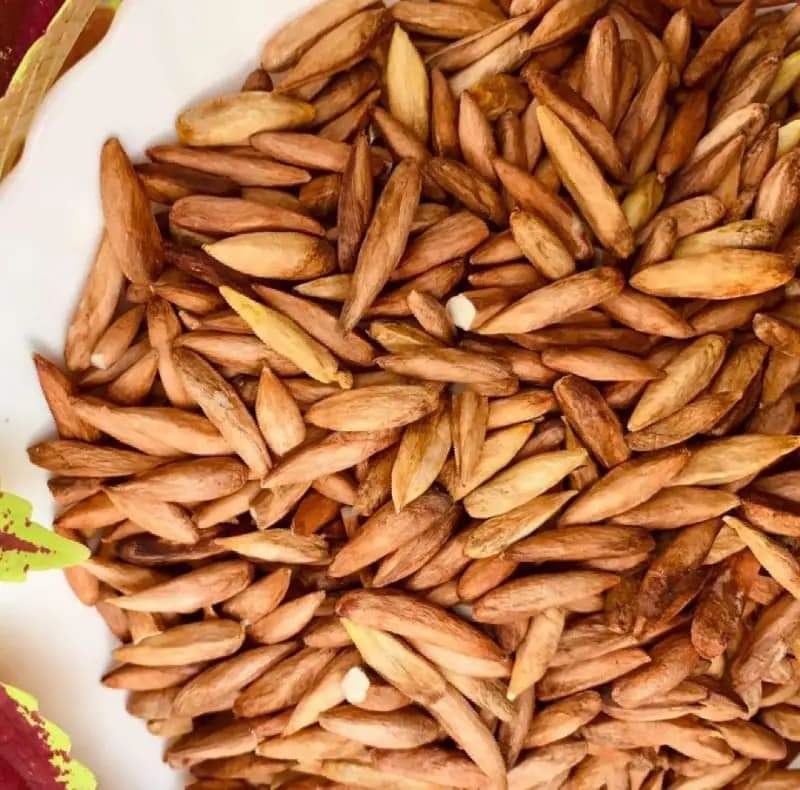The Ceylon Almond, also known as Sea Almond or Kottamba, culture. Found throughout the island, this tree is not only native to Sri Lanka but also to other parts of Asia, including Australia and India. It has earned the title of the Queen of Nuts, owing to its many health benefits, nutritional properties, and significant role in traditional medicine.
The Kottamba fruit is a unique and fascinating natural product. It begins as a small, green fruit that matures over time, changing its color from green to bright red or dark purplish-red. The exocarp (outer layer) is shiny and leathery, while the inner mesocarp is fleshy and fibrous, housing a woody endocarp. Inside, the seed is made up of two delicate cotyledons, which are enclosed by a cream-colored or rarely red testa. What makes Sea Almond particularly intriguing is its rind, a light, pithy tissue that allows the fruit to float. This floating characteristic enables it to be dispersed by sea currents, birds, bats, rodents, and monkeys, ensuring the spread of this valuable plant across various regions.
Ceylon Almonds are an excellent source of a variety of essential nutrients, making them an ideal addition to a balanced diet. Rich in vitamin E, B-vitamins (including niacin), protein, iron, zinc, magnesium, potassium, fiber, and unsaturated fatty acids, they offer numerous health benefits, particularly for pregnant and lactating women.

Beyond its health benefits, Ceylon Almonds play a significant role in Sri Lanka’s economy. The production and sale of Ceylon Almond seeds provide an important source of income for local communities. With over 50 suppliers involved in the trade, the industry generates approximately two million Sri Lankan rupees in monthly income, benefiting individuals across multiple provinces.

Ceylon Almonds are an organic product, free from artificial farming methods. Their natural growth across the island ensures that they are 100% natural. Studies have analyzed the microbial and chemical parameters of the Sea Almond nut, revealing a variety of essential nutrients:
The nutritional profile of the Sea Almond makes it a valuable dietary addition, contributing essential nutrients to the diet and supporting overall health.
Ceylon Almond (Kottamba) is not only a nutritionally rich food but also a significant economic asset in Sri Lanka. With its health benefits, sustainable growth, and contribution to local incomes, Ceylon Almonds truly deserve their title as the "Queen of Nuts." Its widespread use in promoting health and supporting local economies further underscores its importance as a versatile and valuable natural resource.